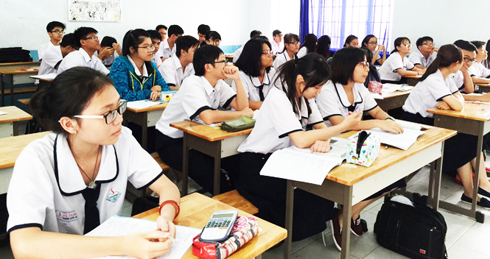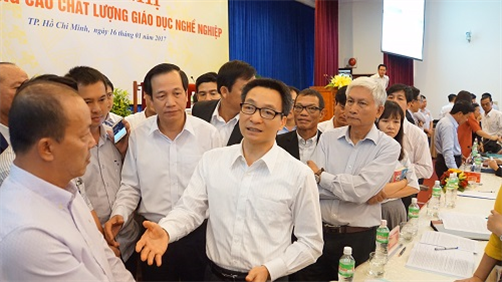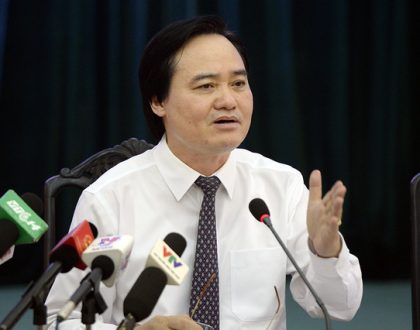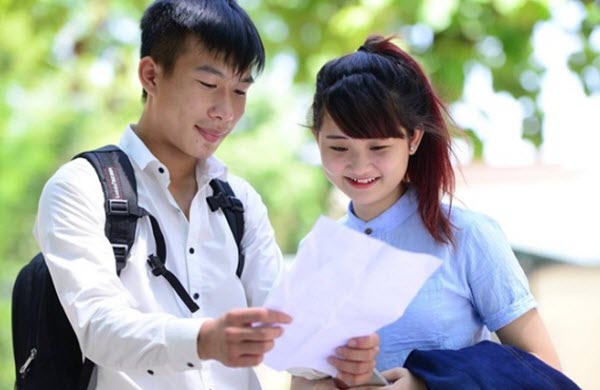July 1, 2020, the 2019 Education Law took effect, along with the implementation of numerous new policies. The scope of this article will address the basic policies that learners are entitled to from the effective date of the 2019 Education Law.
BBasic policies for learners according to the Education Law 2019 in Vietnam (Illustrative Image)
1. Educational Credit in Vietnam
Article 84 of Education Law 2019 stipulates that the State has preferential credit policies regarding interest rates, conditions, and loan duration for learners to have the conditions to study, which encourage private investment in educational credit activities.
In practice, the student loan program was first approved by the Prime Minister of the Government of Vietnam in Decision 157/2007/QD-TTg dated September 27, 2007, with the goal of using state resources to provide preferential credit for students with difficult conditions to borrow funds for study, ensuring social justice, ensuring that no students has to drop out due to economic difficulties. The loan amount in 2007 was 800,000 VND/students, which has now increased to 2.5 million VND/month/students according to Decision 1656/QD-TTg dated November 19, 2019, by the Prime Minister of the Government of Vietnam. This can be seen as a significant adjustment in the loan level for students over the past 12 years, even though it may not meet the needs of students or the current tuition fees, it does demonstrate the interest of the Communist Party, the State, the Prime Minister of the Government of Vietnam, and related ministries and agencies in this program.
All eligible borrowers can access the credit funds quite simply. Each year, the Ministry of Education and Training issues documents requiring training institutions to widely disseminate these policies to all students, based on which they compile the needs and issue confirmation documents for students to borrow funds.
Parents will directly handle the procedures for their children. All loan procedures are widely disseminated to households by the Bank for Social Policies, and the disbursement procedures are very convenient for students.
2. Scholarships, Social Allowances, Tuition Fee Exemptions, Reductions, and Support in Vietnam
The State has policies of awarding scholarships to encourage learning for students with excellent academic achievements in specialized schools, gifted schools, and learners with good or higher academic and training results at vocational education institutions, and higher education institutions; awarding policy scholarships to students in the recruitment system, students in preparatory universities, ethnic boarding schools, learners in vocational education institutions for war invalids and disabled persons.
The State also has policies of providing allowances and tuition fee exemptions and reductions for learners who are eligible for social policies, ethnic minorities in areas with particularly difficult socio-economic conditions, orphans, children without caregivers, disabled persons, and those from poor and near-poor households.
- For students under the recruitment system; students in preparatory universities, ethnic boarding schools; students in vocational education institutions for war invalids and disabled persons: The scholarship amount is 80% of the statutory pay rate per month.
- For learners who are war invalids from poor households studying in vocational education institutions for war invalids and disabled persons: The scholarship amount is 100% of the statutory pay rate per month.
Alongside the supportive policies, the State encourages organizations and individuals to grant scholarships or allowances to learners according to legal regulations. Educational institutions have proactively established funds to support poor and disadvantaged students. Outstanding poor students also receive scholarships to encourage learning, with a minimum scholarship amount equal to the tuition fee.
Moreover, pedagogical students also receive support for tuition fees and living expenses for the entire course instead of being exempt from tuition fees as before, prioritizing the awarding of scholarships and social allowances. Those receiving support for tuition fees and living expenses who do not work in the education sector or do not meet the required working duration within two years after graduation must reimburse the State for the supported expenses. The repayment period is a maximum equal to the training period.
However, pedagogical students who were enrolled before July 1, 2020, will not be subject to this regulation and will continue to be exempt from tuition fees as before.
3. Exemptions and Reductions on Public Service Fees for Students in Vietnam
Students are entitled to policies of exemption and reduction on ticket prices when using public services related to transportation, entertainment, museum visits, historical sites, and cultural works upon presenting their student card, including:
- Students receive reduced prices for train and bus tickets.- Students receive reduced prices for services when directly using services like museums, historical sites, libraries, and exhibitions.
4. Recruitment System in vietnam
The State conducts recruitment into intermediate, college, and university levels under the recruitment system for students who are very few ethnic minorities; students who are ethnic minorities in areas with particularly difficult socio-economic conditions which have none or very few officials and public employees who are ethnic minorities; with policies to create a source of recruitment, providing favorable conditions for these groups to study in ethnic boarding schools and extend the preparatory training time at higher education institutions.
The provincial People's Committee, based on local needs, proposes and allocates recruitment quotas; sends students to study according to approved targets; selects and assigns jobs for learners after graduation.
Previously, under Article 90 of Education Law 2005, those sent to study under the recruitment system had to comply with job assignments after graduation. However, currently, under Clause 3, Article 87 of Education Law 2019, learners under the recruitment system are required to return to work in the locality that sent them to study; they are subject to recruitment and job assignment. Hence, it can be seen that Education Law 2019 has mandated the responsibility of returning to the local area for these learners.
This is also a new regulation amended and supplemented in Law on Cadres, Civil Servants, and Law on Public Employees Amended 2019. Specifically, Clause 2, Article 37 of this Law stipulates that learners under the recruitment system, upon graduation and returning to work in the locality that sent them to study, are recruited as civil servants through recruitment.
Duc Thao
- Key word:
- Education Law
- Vietnam
 Article table of contents
Article table of contents
.jpg)










.Medium.png)
.Medium.png)
.Medium.png)
.Medium.png)
